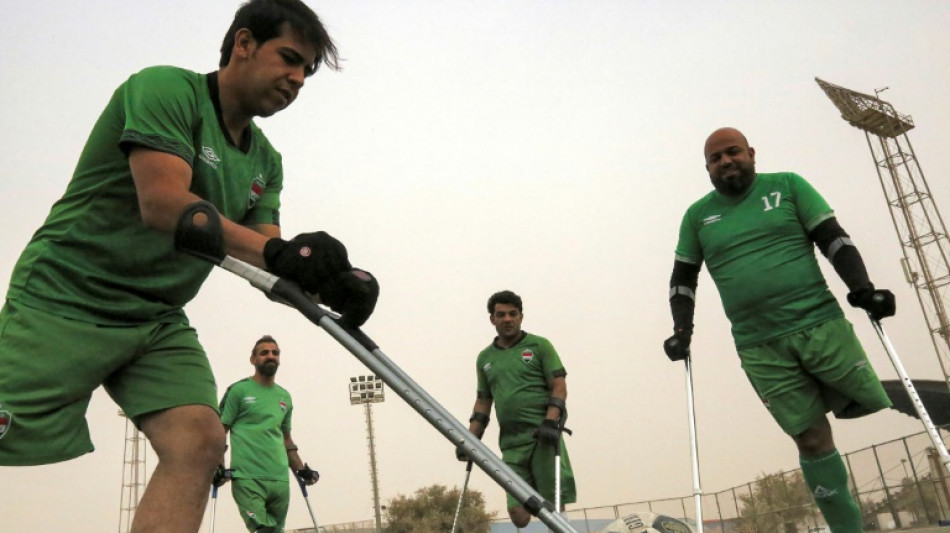
-
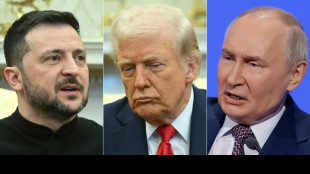 Trump says could meet Putin for Ukraine talks in Turkey
Trump says could meet Putin for Ukraine talks in Turkey
-
NHL's Canucks hire Foote as head coach
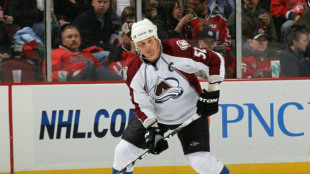
-
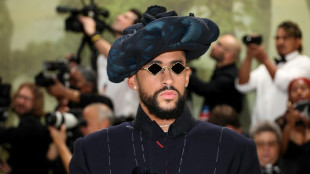 Spain probes ticket fees for Bad Bunny concerts
Spain probes ticket fees for Bad Bunny concerts
-
Daredevil Tom Cruise and his 'Mission: Impossible' wow Cannes
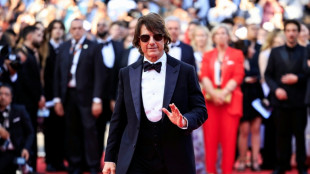
-
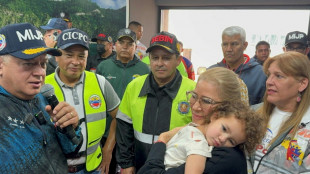 Toddler separated from parents in US deportation case returns to Venezuela
Toddler separated from parents in US deportation case returns to Venezuela
-
Trump announces big Boeing order for Qatar Airways
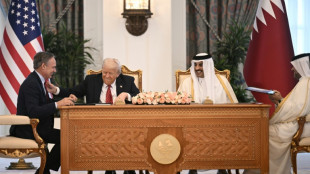
-
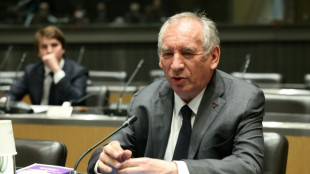 French PM strikes defiant note on child abuse scandal
French PM strikes defiant note on child abuse scandal
-
Champions League return more important than Europa League glory for Amorim
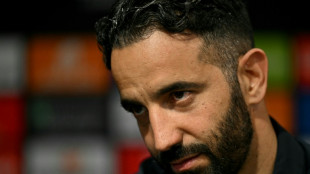
-
 Sean Combs's ex Cassie alleges pattern of abuse ahead of defense grilling
Sean Combs's ex Cassie alleges pattern of abuse ahead of defense grilling
-
Seeking something new, Airbnb CEO promises 'perfect concierge'
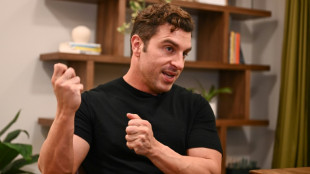
-
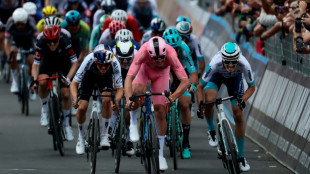 Pedersen takes third stage win of Giro d'Italia
Pedersen takes third stage win of Giro d'Italia
-
'Assassin's Creed' no saviour for struggling Ubisoft

-
 Tottenham's Kulusevski to miss Europa League final after surgery
Tottenham's Kulusevski to miss Europa League final after surgery
-
Huge drop in US overdose deaths, marking progress in opioid crisis
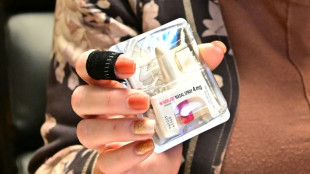
-
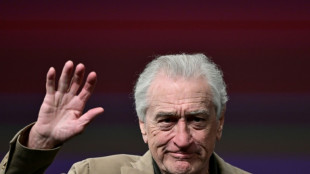 De Niro says Hollywood worried about 'wrath of Trump'
De Niro says Hollywood worried about 'wrath of Trump'
-
Pedersen takes third stage win in Giro d'Italia
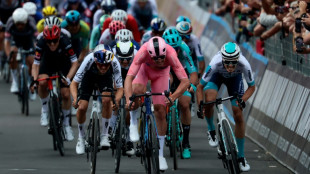
-
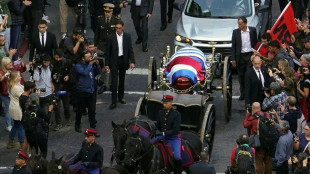 Uruguay bids farewell to popular ex-leader "Pepe" Mujica
Uruguay bids farewell to popular ex-leader "Pepe" Mujica
-
Trump admin drops limits on several 'forever chemicals' in drinking water

-
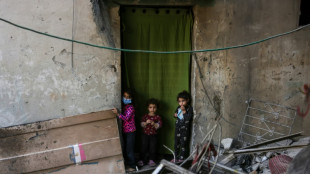 Gaza rescuers say 80 killed in Israeli strikes amid hostage release talks
Gaza rescuers say 80 killed in Israeli strikes amid hostage release talks
-
Ancient reptile tracks rewrite when animals conquered land
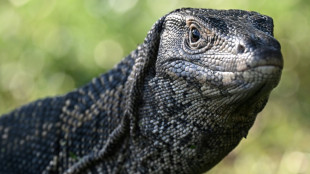
-
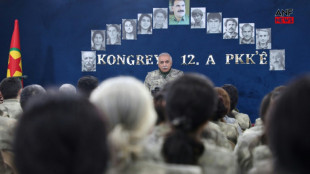 Turkey eyes legal steps after Kurdish militant group PKK disbands
Turkey eyes legal steps after Kurdish militant group PKK disbands
-
Alcaraz sweeps past Draper and into Italian Open semis
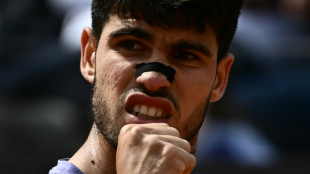
-
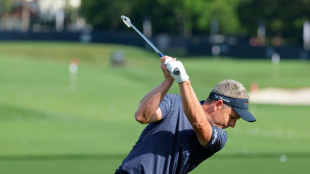 Europe Ryder Cup captain Donald has given players no assurances
Europe Ryder Cup captain Donald has given players no assurances
-
Trump drug price plan could nix investment, warns Roche

-
 Tom Cruise unleashes 'Mission: Impossible' at Cannes
Tom Cruise unleashes 'Mission: Impossible' at Cannes
-
Trump admin weakens limits on 'forever chemicals' in drinking water

-
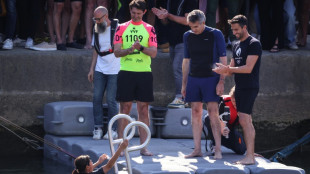 Paris to allow swimming in Seine from July in Olympic legacy
Paris to allow swimming in Seine from July in Olympic legacy
-
Germany's Merz urges Europe-US unity on Ukraine war
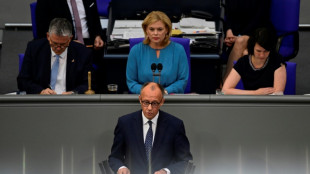
-
 Tom Cruise nearly met his end on 'The Final Reckoning'
Tom Cruise nearly met his end on 'The Final Reckoning'
-
No new burdens for McIlroy, living the dream after career Slam
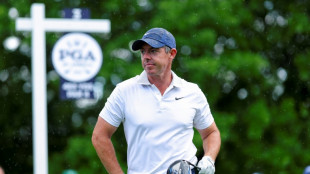
-
 Sean Combs's ex Cassie to face defense grilling at second day in court
Sean Combs's ex Cassie to face defense grilling at second day in court
-
Ageless beauty contest: South African grannies strut the catwalk
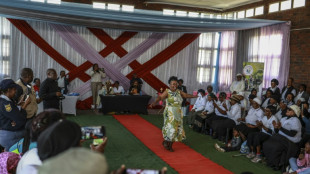
-
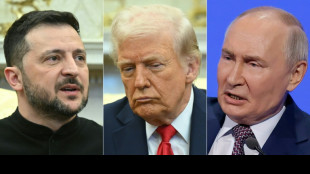 Trump says 'possibility' of meeting Putin for Ukraine talks in Turkey
Trump says 'possibility' of meeting Putin for Ukraine talks in Turkey
-
Gauff sees off Andreeva to reach Italian Open semis
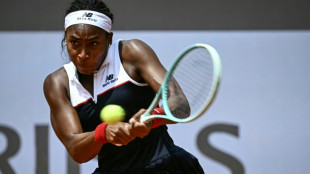
-
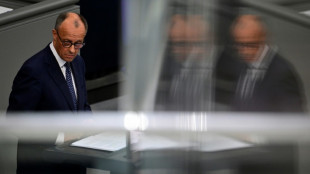 Merz vows to rev up German economic 'growth engine'
Merz vows to rev up German economic 'growth engine'
-
Strikes kill 29 in Gaza, amid hostage release talks
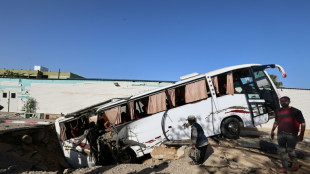
-
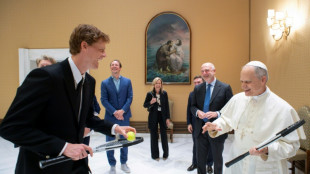 Tennis champ Sinner meets Pope Leo, offers quick rally
Tennis champ Sinner meets Pope Leo, offers quick rally
-
England sees driest spring since 1956: government agency

-
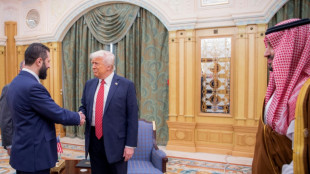 Trump presses Syria leader on Israel ties after lifting sanctions
Trump presses Syria leader on Israel ties after lifting sanctions
-
Rare blue diamond fetches $21.5 mn at auction in Geneva
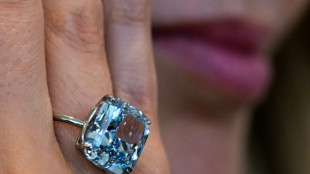
-
 Stock markets fluctuate as China-US trade euphoria fades
Stock markets fluctuate as China-US trade euphoria fades
-
Ousted Myanmar envoy charged with trespass in London residence row
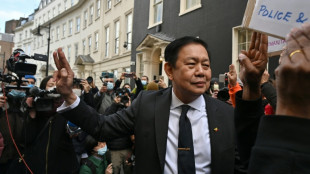
-
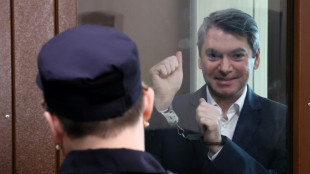 Russia jails prominent vote monitor for five years
Russia jails prominent vote monitor for five years
-
Umbro owner in joint bid for Le Coq Sportif
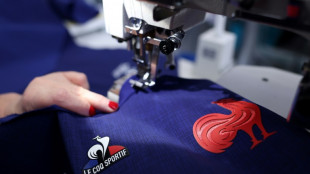
-
 Tom Cruise has world guessing as he unleashes 'Mission: Impossible' at Cannes
Tom Cruise has world guessing as he unleashes 'Mission: Impossible' at Cannes
-
China's Tencent posts forecast-beating Q1 revenue on gaming growth

-
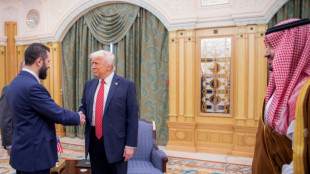 Trump presses Syria leader on Israel relations after lifting sanctions
Trump presses Syria leader on Israel relations after lifting sanctions
-
FA appoint former Man Utd sporting director Dan Ashworth as chief football officer
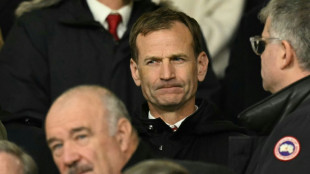
-
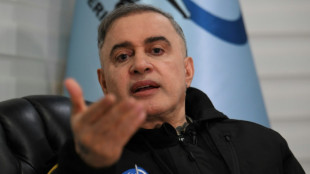 Stop holding opponents incommunicado, UN experts tell Venezuela
Stop holding opponents incommunicado, UN experts tell Venezuela
-
Indonesian filmmakers aim to impress at Cannes
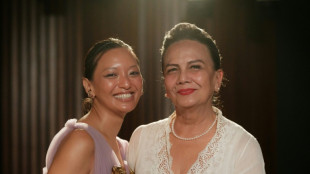

For Iraqi amputees football team, healing is the goal
As a seven-year-old boy in Baghdad, Mohamed Ali dreamt of becoming a goalkeeper -- until a car bomb in the central Tahrir Square ripped away his left arm.
The child had become another casualty of the sectarian blood-letting that raged in Iraq in the years after the 2003 US-led invasion that toppled Saddam Hussein.
"I was deprived of playing football," he said, recalling the traumatic event of 2007 that also ended his time with the junior football team of the Air Force Club in Baghdad.
Today, at age 22, Ali is a member of an all-amputee football team, made up entirely of players who lost arms or legs in Iraq's many years of war and turmoil.
"The creation of this team brought me back to life," he said. "It helped me regain my self-confidence."
The team has some 30 players and has qualified for the Amputee Football World Cup to be held in Turkey in late 2022.
Its founder Mohamed al-Najjar was studying in England when he discovered a Portsmouth amputee team and decided to replicate the experience.
Back in Iraq, he posted an announcement on social networks.
"Applications started pouring in and we formed the team in August 2021," recalls the 38-year-old lawyer.
- 'Severe depression' -
Najjar's right leg was amputated after he was wounded in 2016 "while taking part in the fight against the Islamic State group".
At the time Najjar, like several of his teammates, was fighting with the pro-Iranian Hashed al-Shaabi, a paramilitary force that has since been integrated into Iraq's regular forces.
Three times a week, he now meets up with the group to train on one of the fields of the brand new Al-Chaab complex in Baghdad.
Using crutches, one-legged players warm up by sprinting in the green jersey of the national team, then practice penalty kicks.
The goalkeeper, his left arm amputated, intercepts the ball by blocking it with his stomach.
Before they found the camaraderie of the team, Najjar said, "most of the players were suffering from severe depression".
"Some even had thought of suicide because they had lost a limb and they had been professional players before.
"But we overcame these psychological problems," he said, adding that it pleased him to now see his players "posting their pictures with the team on social networks".
In the official competition, matches are played in teams of seven on fields measuring 60 by 40 metres (about 200 by 130 feet).
The goals are two metres high and five metres wide -- smaller than the 2.4 by 7.3 metre goals used in traditional football.
- 'Daddy, go train' -
The Iraqi state offers financial aid to victims of attacks and of battles against jihadists. The players receive monthly allowances of between $400 and $700.
Most make ends meet by working as day labourers in the markets, said Najjar.
But a major obstacle for the team is a lack of official recognition, and therefore funding, from Iraqi sports bodies.
The Poland-based International Amputee Football Federation is not part of the International Paralympic Committee.
The Iraqi team therefore receives no state subsidies, said Aqil Hamid, the head of the parliamentary committee on disability sports.
For equipment and transport, the team depends on donations from associations, said Najjar. There is also occasional help from some Hashed bodies.
"They helped us with a trip to Iran, they paid for the plane tickets," said Najjar, adding that he hoped for "wider support".
Another team member, Ali Kazim, lost his left leg to a Baghdad car bomb in 2006, which abruptly ended his professional football career with the Air Force Club.
"I couldn't pursue my ambitions, I stayed at home," said the 38-year-old.
Today, his four children are his biggest supporters.
"They are the ones who pack my sports bag," he said. "They tell me: 'Daddy, go train'. My morale has totally changed."
A.Mahlangu--AMWN